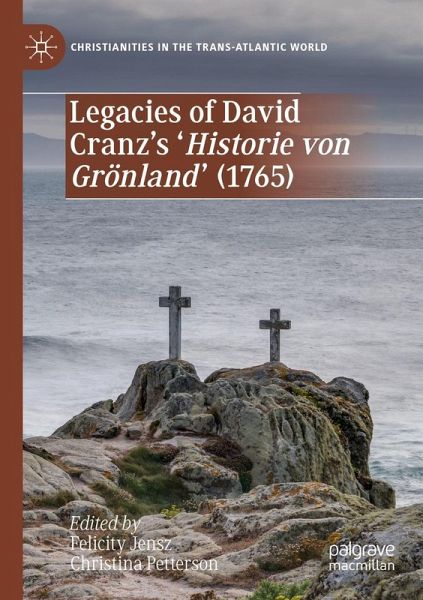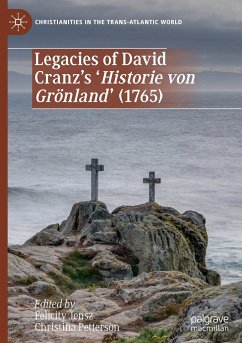
Legacies of David Cranz's 'Historie von Grönland' (1765)
Versandkostenfrei!
Versandfertig in 6-10 Tagen
149,79 €
inkl. MwSt.

PAYBACK Punkte
0 °P sammeln!
This book brings together interdisciplinary scholars from history, theology, folklore, ethnology and meteorology to examine how David Cranz's Historie von Grönland (1765) resonated in various disciplines, periods and countries. Collectively the contributors demonstrate the reach of the book beyond its initial purpose as a record of missionary work, and into secular and political fields beyond Greenland and Germany. The chapters also reveal how the book contributed to broader discussions and conceptualizations of Greenland as part of the Atlantic world. The interdisciplinary scope of the volum...
This book brings together interdisciplinary scholars from history, theology, folklore, ethnology and meteorology to examine how David Cranz's Historie von Grönland (1765) resonated in various disciplines, periods and countries. Collectively the contributors demonstrate the reach of the book beyond its initial purpose as a record of missionary work, and into secular and political fields beyond Greenland and Germany. The chapters also reveal how the book contributed to broader discussions and conceptualizations of Greenland as part of the Atlantic world. The interdisciplinary scope of the volume allows for a layered reading of Cranz's book that demonstrates how different meanings could be drawn from the book in different contexts and how the book resonated throughout time and space. It also makes the broader argument that the construction of the Artic in the eighteenth century broadened our understanding of the Atlantic.












